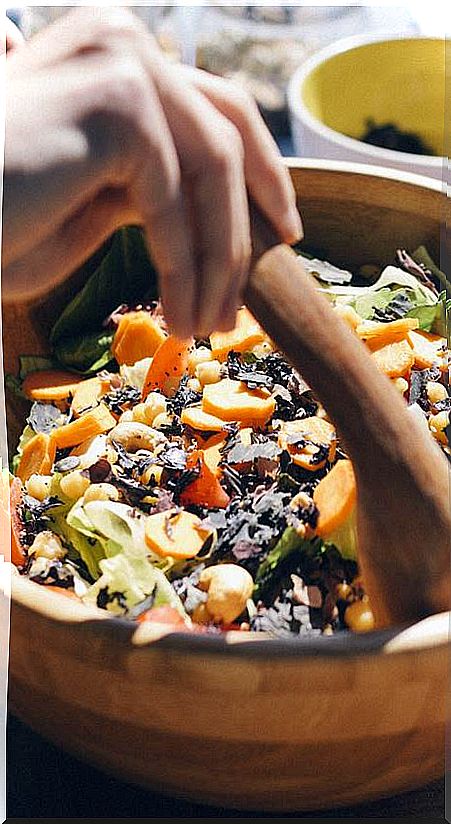Plant Nutrition: Years To Life And Life To Years
Deciding to make a change of life with the intention of gaining health can be a challenge

Today there are endless options, but many of them are in the form of diet rather than a sustainable lifestyle, and so it is difficult to differentiate between a passing fad or a few meaningful principles that can last forever.
In some of these diets (such as Paleo or Blood Group) there are really convincing arguments, but from my point of view, what makes them successful is the simple fact of removing processed products, foods that can create allergies or hypersensitivity, fast food and alcohols, and are in favor of eating seasonal, natural and km 0 products.
Sometimes it is said that we must take into account the foods our ancestors ate; gorillas, with whom we share primary ancestors, follow a practically vegetal diet.
Nowadays, let’s look at it from the perspective that we look at it, the diet in the countries of the northern hemisphere is full of toxic chemicals – preservatives, stabilizers, everything is “E”, which we do not know or identify – nothing to do with what our people ate. ancestors. Their diet was based on fresh vegetables, roots, whole grains, fruits, and berries. In addition, now the lifestyle is much more sedentary. And, who has not ever sinned to drive the car ten times in the parking lot to find a free space closer to the supermarket door? Compare this with going out to collect the food you need for you and your family every day.
Is a vegetarian diet really healthier?
According to a study conducted by the Adventist community at Loma Linda University, California, vegans tend to weigh less than meat eaters, have less insulin resistance (lower risk of diabetes) and tend to be more physically active. In addition, vegetarians tend to live on average about 10 years longer than the rest of the population, they tend to drink less alcohol and do not tend to smoke as much. All of these factors play a positive role when it comes to longevity.
One of the greatest benefits of following a plant-based diet is the lower susceptibility to disease. Here are some facts:
- The incidence of cancer is lower : a vegetable diet for two weeks can increase a woman’s defenses against breast cancer.
- Vegetarians are also less prone to cardiovascular disease, since these are more associated with the consumption of animal fat. The high consumption of fiber in a plant diet protects us from high levels of cholesterol and sugar (diabetes) in the blood.
- Studies conducted over the past decade have also shown that fruits and vegetables are potent inhibitors of respiratory diseases. A diet rich in green leafy vegetables are rich in potassium and other phytonutrients that reduce the risk of stroke and lung infections.
- Vegetarians tend to suffer less Alzheimer’s, in fact, those who eat meat on a regular basis suffer double risk of suffering from some type of dementia.
Could it be the secret of happiness?
It is clear that we are what we eat, but not only this, our mood can also vary depending on our diet.
Studies have shown that people who eat a diet rich in fresh fruits and vegetables are the happiest people. Eliminating meat from the diet for two weeks has yielded significant results in improving mood, even faster than taking antidepressants.
It is also true that there are many vegetarians who eat junk food (chips, highly processed cereal bars, etc.) but, in general, they follow a lifestyle that includes more natural foods, more healthy habits that reduce exposure the body to toxins, and increased physical activity. And last but not least, they also tend to view and respond to the world in a more positive and optimistic way.
So with all this said, I think we have enough reasons to increase the consumption of vegetables a little more or directly make these the basis of your diet.









